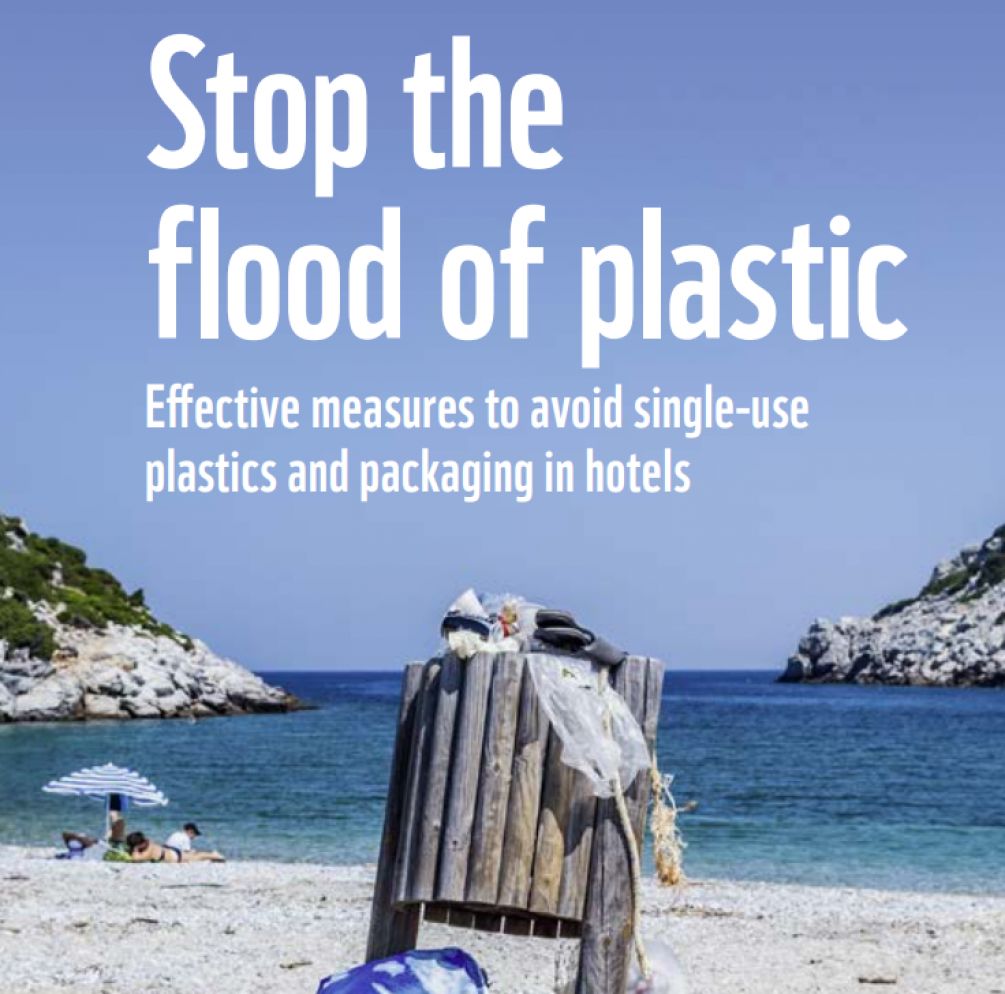This document, made in collaboration with WWf and Wikinger Reinsen, was created to show ten most effective measures to reduce the amount of disposable plastic waste.

After a previous analysis in the tourism industry, it was concluded that the use of plastic is excessive and should be replaced by other materials. In addition, all those single-use products (made by plastic, wood or paper) should gradually be reduced as much as possible.
Currently, more than 500,000 tons of plastic end up in the Mediterranean Sea every year and reach the most famous European tourist destinations. This could change if single-use plastic products were avoided and the packaging policy of most tourist companies such as hotels or restaurants was changed, in addition to, of course, controlling the waste management, recycling, and educating both workers and tourists.
For the development of the document "Stop the flood of plastic" we could count on the participation of hotels in Greece, Italy, France and Spain, which served to know the concern and willingness to change by the hotel sector, and obstacles to that must be faced for this, such as high costs, inadequate products, lack of suppliers ...
This document, created in German and English, offers alternatives to the conventional use of plastic as it was conceived so far explaining its advantages according to the level of financial benefits, practicability and environmental impact. In addition, it offers a series of statistics and data of interest in the management of the tourism sector in the four countries that had been previously studied and in other relevant countries.7
Full document can be found in: https://www.wwf.de/fileadmin/fm-wwf/Publikationen-PDF/WWF_Plastikstudie_Hotelma%C3%9Fnahmen_eng.pdf